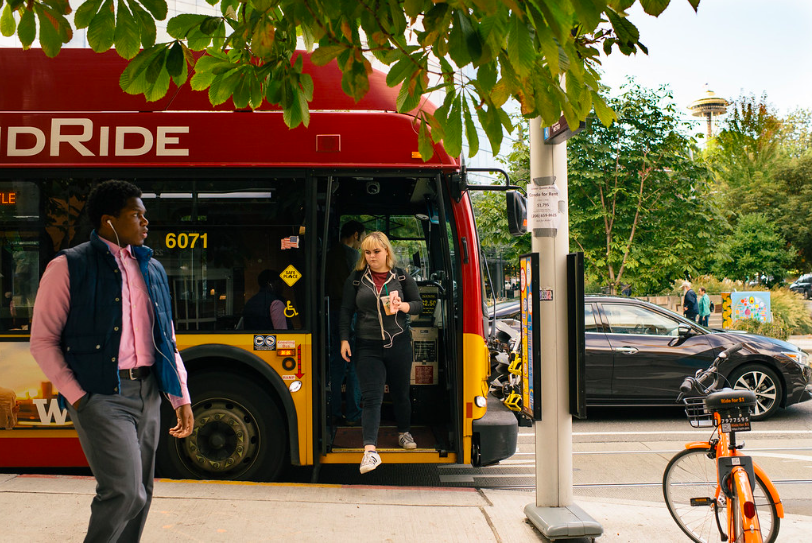Sponsored post: Spin and Better Block Foundation are calling on designers, urbanists and anyone who cares about safe and livable streets, to submit ideas for a new generation of multimodal parklets. Winning designs will get built and installed in Denver in September. Let’s take back our streets from cars, one space at a time. Apply now: https://www.spin.pm/streets
Transit agencies often treat fare evasion with arrests and prosecution, but Seattle's King County Metro is going with compassion and progressivism.
Turnstile jumping typically stems from poverty — 43 percent of King County Metro fare-beaters had incomes of less than $1,000 a month. An independent audit the same year found almost a quarter of the warnings and citations went to "people experiencing homelessness or housing instability."
The audit said the way the agency was conducting fare enforcement was not very productive and was also at odds with its equity goals. So, beginning last year, the agency removed the court system from the process. The previous civil penalty was $125 and could be referred to the court system for nonpayment. Now, fare evasion reports are now handled by the agency itself.
First-time offended are issued a warning. If riders receive a second violation, they are offered a menu of resolutions. These are designed specifically so that they don't trap folks with lower-incomes in a cycle of debt and criminalization.
Under the new system, violators can choose to pay a $25 fine within 30 days. Or they can perform two hours of community service. Or they can simply put $25 on their Orca card for future use. Alternatively, the fine will be voided if they enroll in a transit discount program for low-income people.
King County Metro has, since 2015, offered half-price fares through the "ORCA Lift" program to people with incomes below 200 percent of the federal poverty guidelines. But signing up to receive benefits is not effortless. According to the agency's survey of fare beaters, about half were eligible for discounted transit fares but had not enrolled in the program.
That was just the first of a handful of programs that are designed to improve affordability. Seattle began offering free transit passes to all high school students and some college students last year.
In addition, since the results of its survey and audit, King County has been doing more to expand affordability for those with very low incomes. Seattle recently announced it would provide free ORCA cards to 1,500 people who live in 11 public housing communities across the city. The one-year pilot program will cost about $1 million, according to the Seattle Times.
A recent review [PDF] of the changes advises the agency go even further: Instead of simply enforcing fare payment, fare enforcement officers operate should take a role in informing riders about the discounted ORCA Lift program.
And enforcement agents should receive special training in implicit racial bias and de-escalation techniques. When the agency evaluated its progress in January, black people were being disproportionately ticketed — receiving about 42 percent of violations despite comprising just 7 percent of the county's population, according to the Seattle Times.
Metro Transit also recommended more places to purchase ORCA cards be made available, since RapidRide riders purchase them before entering. Special interventions are also needed for riders with no incomes, or who may have mental disorders, the report found, like connections to social service providers.






